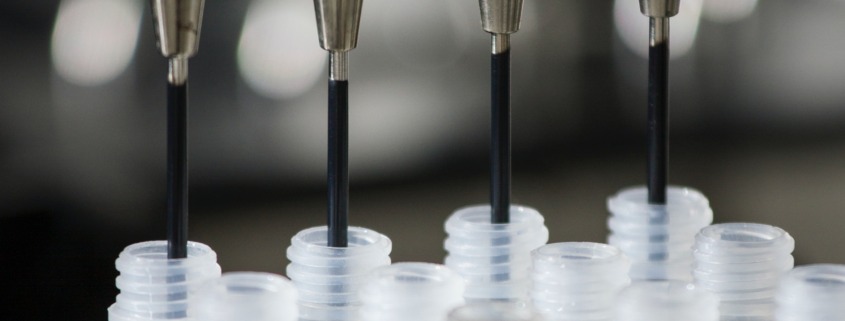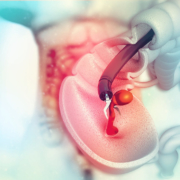Identifying New Biomarkers in Fecal Samples to Detect Colorectal Cancer
Biomarkers allow scientists to identify certain diseases from a simple biological sample like urine, breath, or even feces. Volatile organic compounds (VOCs) are the byproducts of metabolic processes associated with cancer, necrosis, or other metabolic changes. Scientists have now identified a new biomarker associated with both colorectal cancer (CRC) and adenoma (noncancerous tumor) that can be used for detection.
The cross-sectional study included 24 newly diagnosed CRC patients, 24 patients with adenomas, and 32 individuals who had a normal colonoscopy between July 2017 and July 2020. Individuals with normal colonoscopies and those with adenomas had fecal samples collected before and after their colonoscopy. Samples were requested from CRC patients 3-4 weeks after diagnosis and before treatment.
Of the 60 VOCs identified, only 3 showed different peaks between CRC and the control groups: p-cresol, 1H-indole, and 3(4H)-DBZ. There was a statistically significant difference between p-cresol peak values in each group with the greatest difference between CRC and the control group. This was also the same for 3(4H)-DBZ. However, 1H-indole did not have a significant difference between the study groups.
After adjusting for sex, age, and body-mass index (BMI), the researchers found that only CRC was associated with increased p-cresol and 3(4H)-DBZ, and p-cresol seemed to be the best possible predictor of CRC. A combination of p-cresol and 3(4H)-DBZ “is also optimistic as a combined biomarker” according to the study authors.
p-cresol was also abundant among patients with adenomas compared to healthy controls. This was also the case after adjusting for age, sex, and BMI.
Although more work needs to be done to determine what processes produce these VOCs, these associations can launch a new set of studies to confirm its use in a clinical setting. Other biomarkers have been identified that can predict CRC occurrence and mortality. Overall, the ability to better detect CRC and precancerous adenomas play an important role in global prevention efforts. A better understanding of the biological processes involved in these diseases is crucial for those efforts to be successful.
Kaylinn Escobar is a Colorectal Cancer Prevention Intern with the Colon Cancer Foundation.
Photo credit: National Cancer Institute on Unsplash






Leave a Reply
Want to join the discussion?Feel free to contribute!